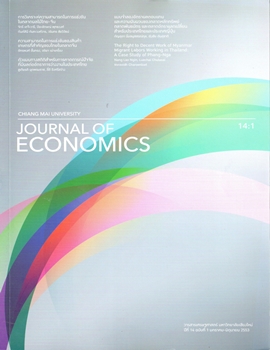THE RIGHT TO DECENT WORK OF MYANMAR MIGRANT LABORS WORKING IN THAILAND : A CASE STUDY OF PHANG - NGA
Abstract
This study investigates three areas as follow: Section 1 investigated the demographic characteristics, socio - economic characteristics if those Myanmar citizens migrating into Phang-Nga Province, as well as their motivation for migrating. Section 2 investigates the key exploitation indicators used, combined with the minimum availability of decent work. Section 3 investigates the expenditure patterns of the Myanmar migrants, so as to ascertain whether a minimum wage could cover their living expenses and those of their family.
The Myanmar migrants in this study worked in four sectors of employment: fishing, construction, shrimp farming and rubber plantation, and most were male. It was found that the migrant workers have migrated due to the poor economic situation in their place of origin. Migrants working in the construction sector suffered the most in term of retention of original ID document by their employers, and not being able to obtain them when needed which has under the minimum standard of no passport or ID. Myanmar migrants in tow sectors: rubber plantation and fishing, worked excessively long working hours without receiving overtime payments. Myanmar migrant workers in all four work sectors were living in unhygienic surroundings. Migrants working in fish processing were found to have the lowest earnings in relation to their living expenditure, based on the income they received from the minimum wage.
Downloads
Issue
Section
License
All opinions and contents in the CMJE are the responsibility of the author(s). Chiang Mai University Journal of Economics reserves the copyright for all published materials. Papers may not be reproduced in any form without the written permission from Chiang Mai University Journal of Economics.






